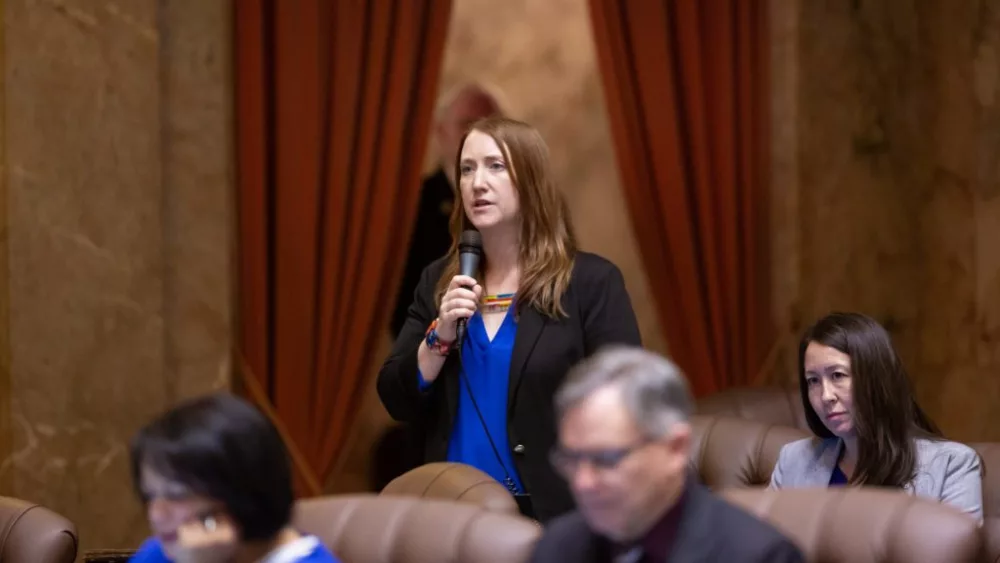OLYMPIA, WA – Many states don’t tax synthetic nicotine products like Zyn, but Washington might start after House Democrats advanced a bill on Tuesday that would expand the state’s tobacco tax.
The proposal comes as nicotine pouches and counterfeit e-cigarettes flood the market and find their way into teenagers’ mouths. Democrats say House Bill 2033 could even level the playing field while also tackling a public health issue, but Republicans say they’re taxing the joy out of life.
“These products did not exist when the statute was written. Had they existed, they would have been included,” Rep. April Berg, D-Mill Creek, told the House Appropriations Committee on Tuesday. “They do exist, and we always like to keep our tax system in line with innovation.”
With the legislative session ending on April 27, we’re already well beyond several cutoffs for advancing proposals out of the house of origin; however, with a $16 billion shortfall at stake, Democrats still have time to pass bills necessary to implement the budget.
Gov. Bob Ferguson promised to veto the majority party’s proposed budgets during a press conference on April Fools’ Day. His comments sent Democrats to the drawing board because they relied on a novel wealth tax, which he said is destined for lawsuits if it passed.
Tobacco and synthetic nicotine products might be part of the fix, along with lifting the lid on annual property tax hikes and other fees. According to a fiscal note, expanding the state’s tobacco tax to include synthetic nicotine could generate more than $225 million through 2031.
Republicans floated several amendments that Democrats rejected during Tuesday’s executive session. If passed, they would have exempted nicotine products approved by the U.S. Food and Drug Administration, or FDA; directed the revenue to the state’s Tobacco Prevention and Control Account; exempted military bases from the tax; and defined “alternative nicotine products.”
“I hear about wanting to protect young people, and I get that, but we’re also a state that allows babies and toddlers to live in homes where there’s active fentanyl abuse,” Rep. Travis Couture, R-Allyn, said regarding Democrats rejecting an exemption for FDA-approved products.
Another failed amendment would have exempted products sold in the state that aren’t subject to tax already, undermining HB 2033; the last change would have required an impact review to see if it would disproportionately affect low-income residents and communities of color.
Rep. Monica Stonier, D-Vancouver, defended her bill against the proposal, adding that higher prices pose a barrier to teens attempting to access synthetic nicotine products.
“I know that much of the opposition here is around the adults who use these products, and I get the argument for this being a regressive tax,” Stonier said. “If the use of cessation products reduces the sales tax we gain on tobacco products, I welcome that.”
The proposal now heads to the House Rules Committee to schedule a potential floor vote over the coming days before it reaches the Senate.
This article was written by Tim Clouser and originally published by The Center Square. It is republished here with permission.





